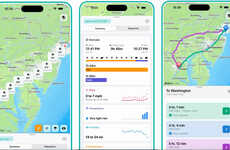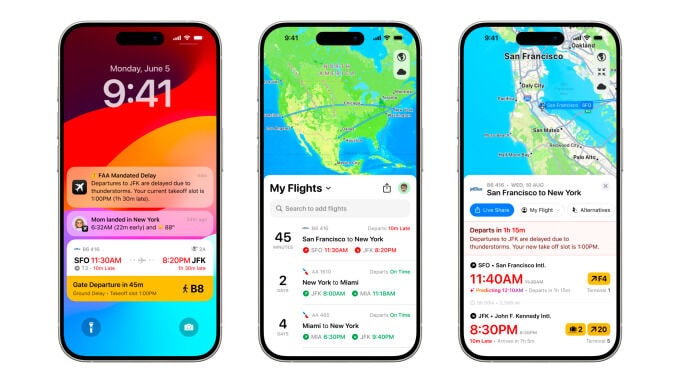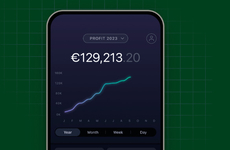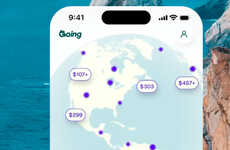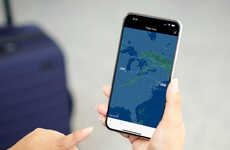
The 'Flighty' App Now Uses Machine Learning Technology
Michael Hemsworth — August 7, 2024 — Tech
References: flightyapp & techcrunch
The 'Flighty' app is getting a machine learning update in the form of Flight 4.0 that aims to elevate the flight tracking app into its next era. The app will now interpret data that relates to what traditionally causes flight delays -- late aircrafts and airspace problems -- and provide users with information about potential delays before airlines. The app will provide a more accurate snapshot of how long a delay might actually be due to things like group stops at airports, weather issues and more.
The latest version of the 'Flighty' app also includes live airport performance trends that can be interpreted to provide additional context behind potential delays that aren't related to individual aircrafts. The latest features are being offers as part of the Flighty Pro subscription priced at $4 for a week or $48 for the year.
Image Credit: Flighty
The latest version of the 'Flighty' app also includes live airport performance trends that can be interpreted to provide additional context behind potential delays that aren't related to individual aircrafts. The latest features are being offers as part of the Flighty Pro subscription priced at $4 for a week or $48 for the year.
Image Credit: Flighty
Trend Themes
1. Machine Learning-enhanced Travel Tools - Integration of machine learning into travel tools like the Flighty app represents a significant shift towards predictive analytics in enhancing travel experiences.
2. Real-time Flight Delay Analytics - Leveraging data to provide real-time insights on flight delays introduces unprecedented accuracy in travel planning and management.
3. Subscription-based Travel Apps - The rise of subscription models, as exemplified by Flighty Pro, indicates a growing trend for premium, continuous service offerings in the travel tech industry.
Industry Implications
1. Travel Technology - Advancements in travel technology, particularly through the use of machine learning, are enhancing the accessibility and precision of travel-related information.
2. Artificial Intelligence - Implementing AI and machine learning in consumer applications is broadening the scope of how everyday services can be optimized and personalized.
3. Data Analytics - Data analytics in the travel industry is becoming increasingly sophisticated, enabling tools that predict and manage disruptions more effectively.
7.5
Score
Popularity
Activity
Freshness




